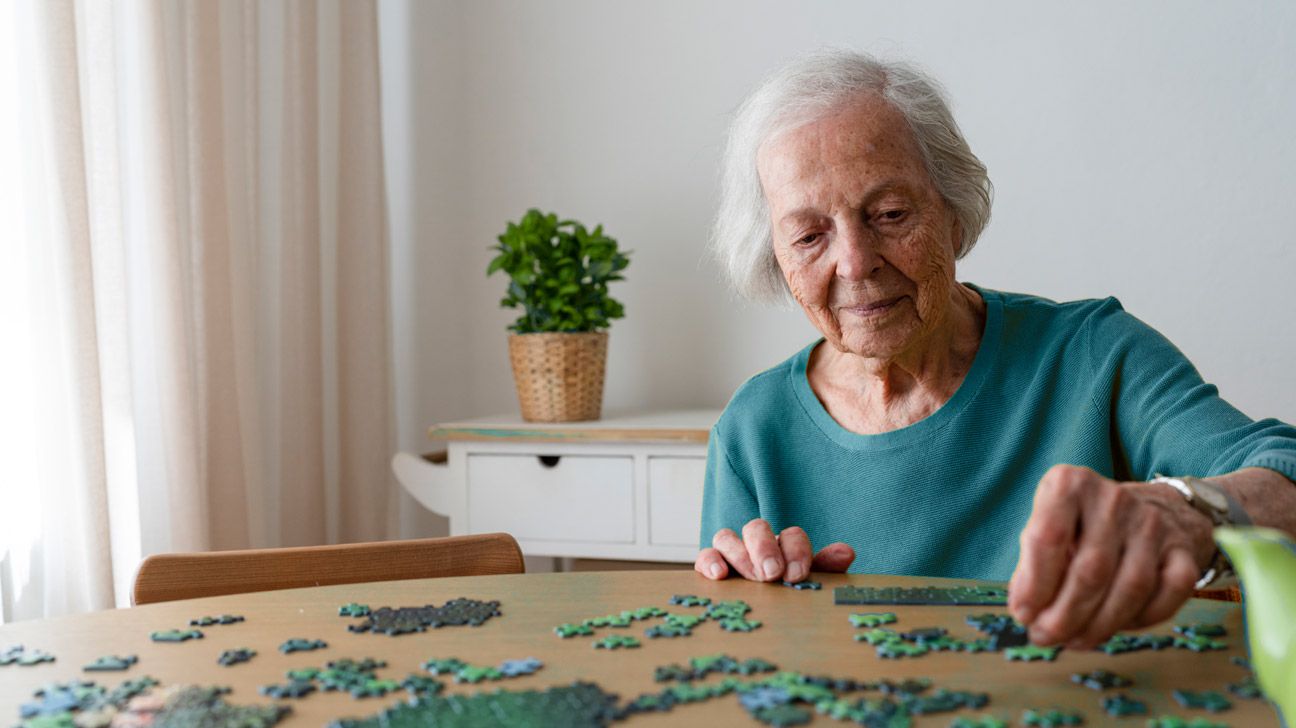There are plenty of products available to help make everyday life easier for people with Alzheimer’s disease. These assistive products are simple, affordable, and easy to find.

An estimated 6.9 million Americans age 65 and older are living with Alzheimer’s dementia in 2024. The Alzheimer’s Association estimates that by 2060, the number of people age 65 and older with Alzheimer’s dementia will reach 13.8 million, barring the development of medical breakthroughs to prevent or cure Alzheimer’s disease.
Not all people with the disease go into nursing homes or assisted living centers. In fact, many want to live independently. There are many products that people or their caregivers can use to help them exercise their memory and maintain independent living. We’ve rounded up five simple product ideas to support those living with AD.
These can be an important device to help the person keep track of dates and times. Clocks such as Dayclox have large digital faces that spell out the full date. It also has a sharp, nonglare display that can be useful for anyone with visual impairments. In case confusion between different times of day is a persistent issue, the Geriguard Solutions Dementia Clock tells you whether it is morning, afternoon, evening, or nighttime.
Since so many people have mobile phones with built-in clocks, it is becoming increasingly common that physical clocks are not around. For someone with Alzheimer’s disease, looking at a phone may not be helpful, thus the importance of a physical specialized clock.
Large print calendars are an effective way to remember important dates. A large wall calendar is also hard to miss, helping anyone to keep track of dates, appointments, and special occasions.
Color coding different events can help highlight certain types of events. Using stickers with pictures (such as a simple medical image or birthday cake) can help create more contrast between appointments and special occasions.
Not only can games be wonderful to keep our minds active, but they can also introduce a social aspect. Matching exercises, ordering games, and recall exercises are all great brain games.
Staying connected is important, especially when your friend or loved one has dementia or Alzheimer’s disease. The Memory Phone can be programmed with numbers and images so the user only has to push the person’s picture to call them.
A medical ID bracelet is a good way to provide emergency responders with a quick way to know a person’s diagnosis or specific needs. Having a loved one with Alzheimer’s disease wear a medical ID bracelet can also provide peace of mind if you can’t be with them all of the time.
There are plenty of innovative products on the market today that enable those with Alzheimer’s disease, dementia, or other forms of memory loss to live safely, whether they are fully independent or not.
These products not only assist the individual but can offer much-needed peace of mind for busy caregivers who want to make sure their loved ones are always safe.




